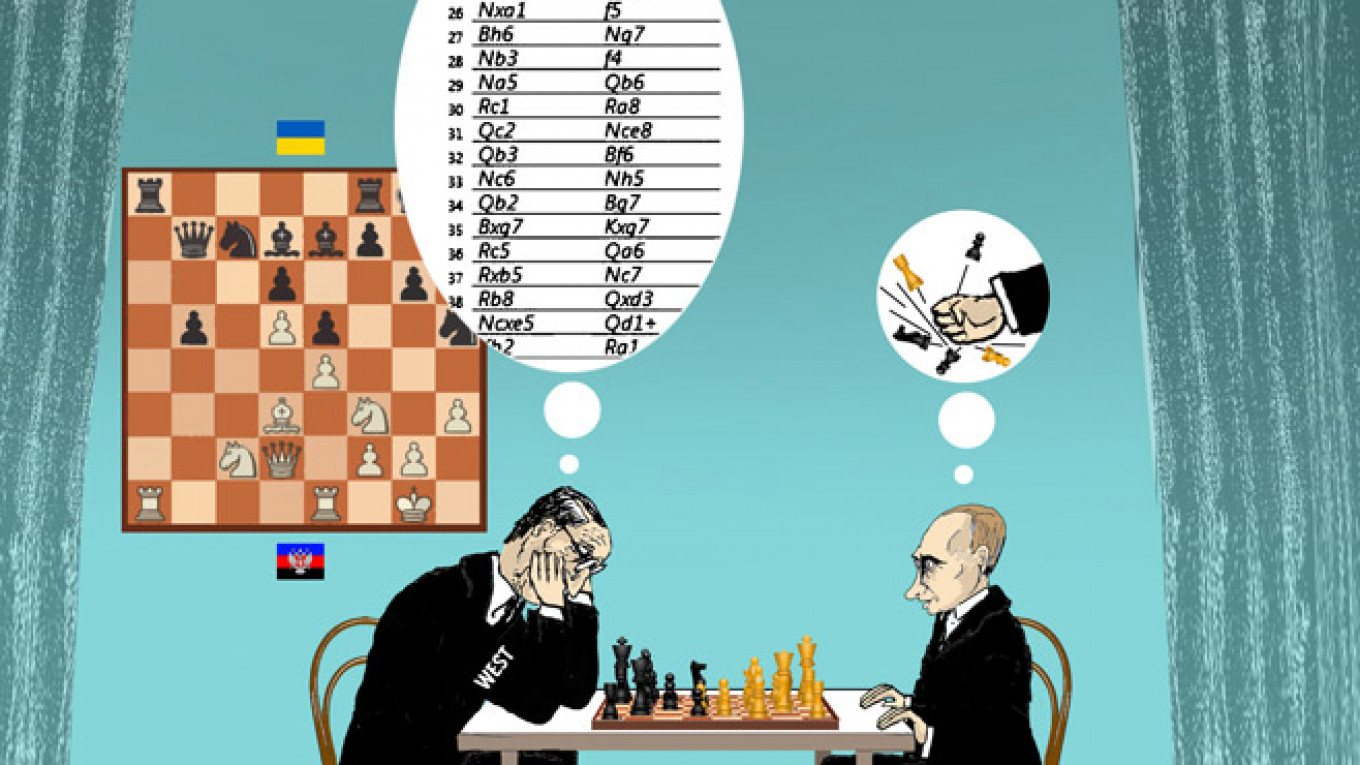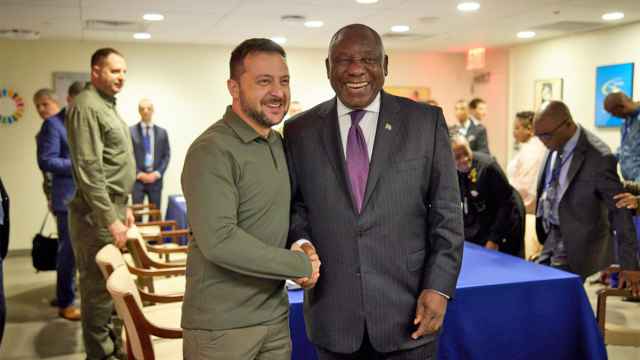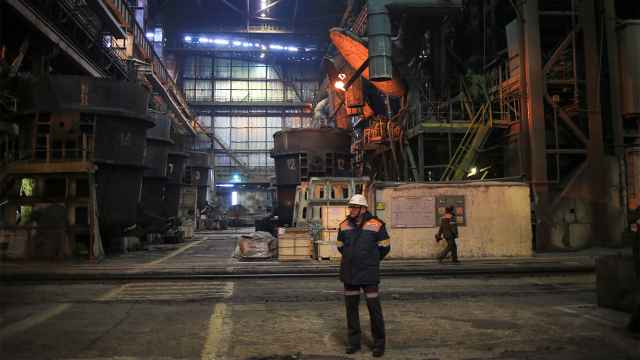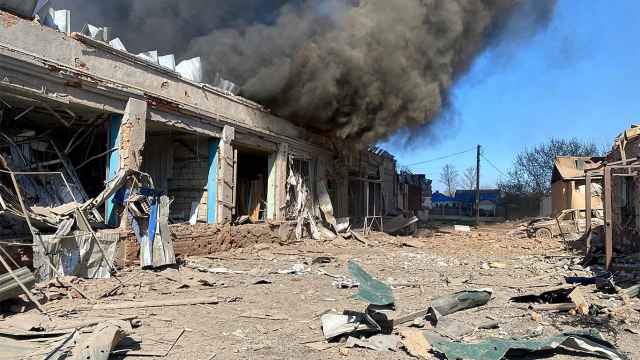The question of providing lethal assistance to Ukraine — essentially, anti-tank missiles, counter-battery radars, surveillance drones, and communications and radar jammers — is occupying Western governments, pundits and scholars. However, the crucial question is not whether this is right, nor what support would best meet Kiev's needs, but where is this meant to lead?
The proposed weaponry is essentially defensive. While, of course, even "defensive" weapons have a role in the attack, the aim is presumably to provide Ukraine's battered forces the capacity to resist further rebel attacks, and more particularly those spearheaded by better-armed and disciplined Russian regulars.
After all, while Moscow continues to deny the presence of its own troops (except as individual "volunteers") there is a growing body of video and other evidence showing advanced tanks and other systems that could not have been plundered from Ukrainian stocks, being operated by people who clearly know what they are doing and who have been trained together.
Such a decision would certainly mark a drastic change in Western involvement in Ukraine and a powerful vote of confidence in Ukrainian President Petro Poroshenko's government. It would also be an open challenge to Moscow, which has already make its opposition to any such moves all too clear.
It is easy to see the appeal for Westerners dismayed at the escalation in the war, Moscow's apparent willingness either to push the Donbass rebels onto the offensive or at least support them in this, and impatient with the failure of economic sanctions to bring peace.
It is rather harder to see where the "arm Ukraine" camp sees this move going. It is possible that the transfers of weapons will allow Kiev first to stabilize the front line and then maybe even roll it back, winning at least the military phase of the conflict or inducing Moscow to abandon the rebels to their fate.
However, that presumes that President Vladimir Putin will be willing — or, indeed, feel able — to accept an unambiguous defeat. The temptation to fight firepower with firepower, to escalate in response, might be irresistible.
Furthermore, even if and when the decision is made, it will take time to ship the weapons to Ukraine, to train Kiev's soldiers in their use and then to see them used on the battlefield. If Moscow really feels these might be war-winning weapons, one potential response would be to strike first and hard, to escalate substantially in a bid to win the war quickly.
Near-enough absolute control of Ukraine's airspace is Russia's for the taking. Moscow could use this to launch devastating strikes on airfields, roads, railways, barracks and other facilities across the country.
The aim would not, presumably, be to conquer the country so much as to degrade its combat capabilities and allow the expansion of the rebel-held areas to militarily and economically viable extents, including Mariupol and maybe even the fabled land bridge to Crimea.
After all, by this point Moscow might feel it has nothing to lose and everything to gain by creating one or two new east Ukrainian pseudo-states that it can then freeze until the times are more propitious.
What would Kiev do then? Use its new kit to start an offensive war against a reinforced and entrenched enemy, a war in which the odds of it facing openly declared Russian "peacekeepers" might become very real? And how will Washington feel at the prospect of an American missile killing such an openly declared Russian soldier?
None of this is intended necessarily to say that Kiev ought not to be armed. Unless the West is willing to contemplate much more dramatic economic sanctions, it may be the only way to bring about quick policy change in Moscow.
But the nature of that policy change is unpredictable. The West needs to consider not just the next step, but the possible steps after that, the contingencies should the Kremlin decide to escalate or accelerate in response.
To date, after all, the West does not seem to have a clear and mutually-agreed aim. Is it to get Russia out of Crimea? (Good luck.) Stop its destabilization of the Donbass? (Feasible, although we don't yet know how much actual control Moscow has over the rebels.) Undermine and humble the Kremlin? (Even if unwilling to admit it publicly, to some this is clearly an opportunity to hit Moscow more than help Kiev.)
But beyond that, given that Moscow undoubtedly must be planning how it will respond if the decision is made to arm Ukraine, the West needs to try to consider what this will be — and how it can respond in turn. We have been taken by surprise too often in this crisis already.
Mark Galeotti is professor of global affairs at New York University.








